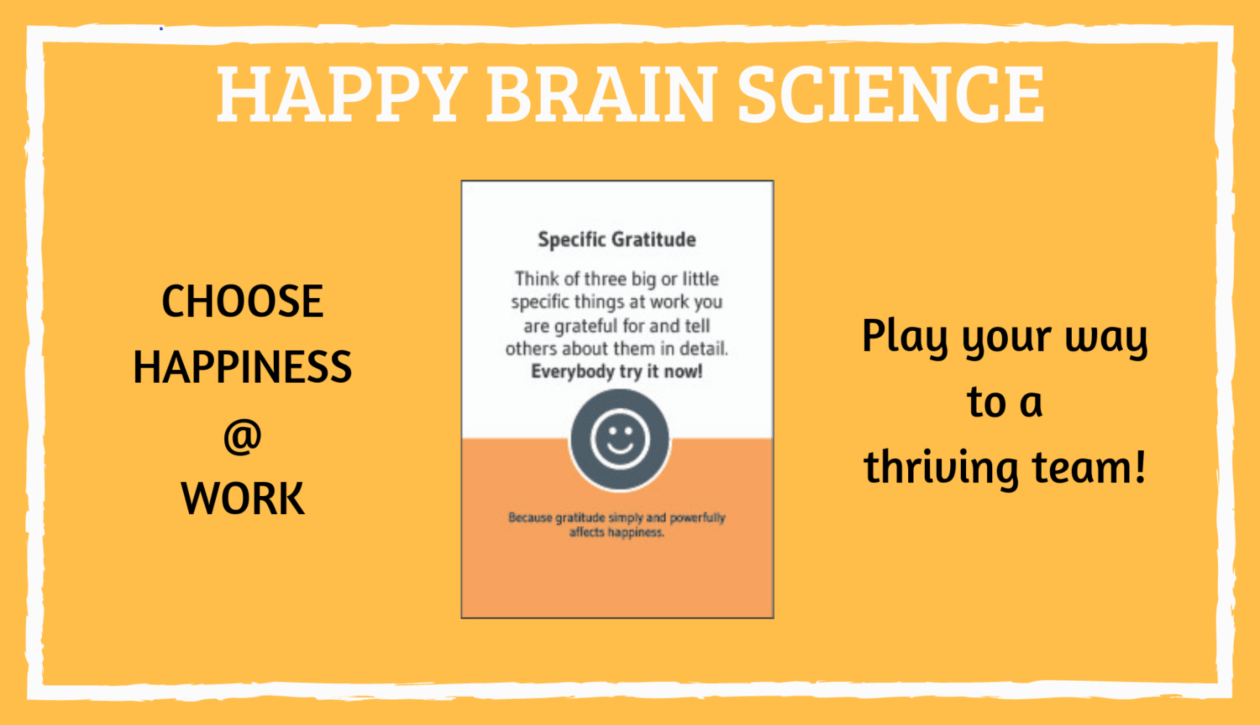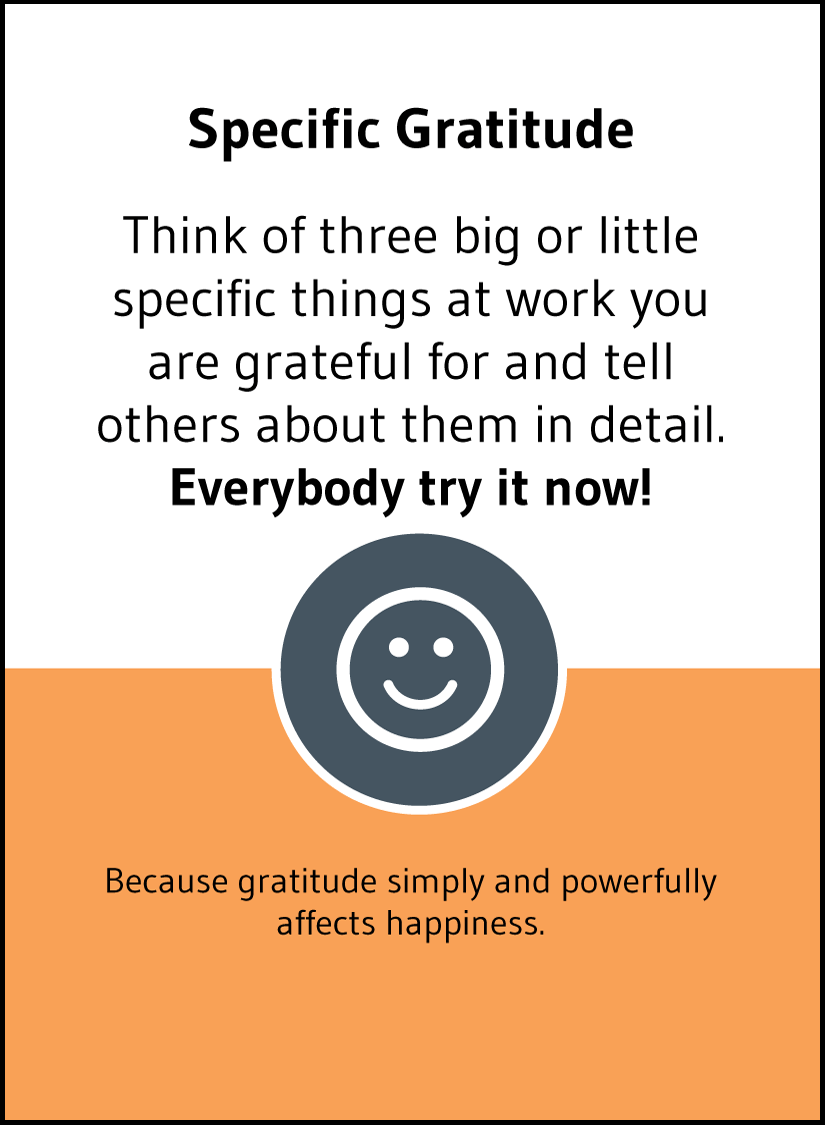
SPECIFIC Gratitude: How to Maximize Appreciation
Employee survey results indicated that Adam was doing well overall as a manager. But the survey scores were lower when his supervisees were asked about feeling appreciated. Adam was confused. He was sure he expressed appreciation to the people on his team frequently.
He brought up the issue during his next one-on-one meeting with his manager, Chris.
“I’m honestly mystified by these scores from the team about appreciation,” he told Chris. “I tell my team ‘thank you’ all the time!”
“Hmmm,” said Chris. “How do you thank them?”
“What do you mean?” Adam asked. “I say, ‘Thanks!’ Or maybe, ‘Good job!’”
“Are you specific with your gratitude? Do you tell them exactly what you’re grateful for?”
“I don’t think I have to spell it out. It’s almost always in the context of a bigger conversation. They know what we’re talking about,” replied Adam.
Specific Gratitude
“That may be true, Adam,” said Chris. “But there’s so much more power in your thanks when you get very specific. There’s a recipe I like to use:
- What exactly are you grateful for? Spell it out, even if you think the recipient knows.
- What was the primary emotional impact? How did this person’s action make you feel better in some way?
- What was the main business impact? What positive effect did their action have on the project or business?

For example, let me give you some specific gratitude:
Adam, I’m so grateful that you’re learning how to apply science to make your team happier and more engaged on the project (that’s the specific action). The effort you’re putting in helps me feel more positive and confident about the project (emotional impact). And it lets me focus more on other projects that need my attention, knowing that you’ve got this one running well (business impact).
Does that make sense?” Chris finished.
“Not only does it make sense,” replied Adam, “But now I feel great! And it makes me realize you always use specific gratitude when you thank me. I can feel what a difference the details make. I’ll try this with my team.”
The Science
Many of us know that gratitude boosts happiness and that happiness boosts results. But we often give others a quick “Thanks!” and mentally check off that we’ve been grateful.
Research shows that we ourselves get more of a boost when we describe something we’re grateful for in detail, rather than listing off multiple items without delving deeper. And if we’re expressing appreciation to someone else, studies suggest that the impact is greater for them, too.
Apply It
Form a new habit! Every time you want to say “Thanks,” make it more specific.
Try to include:
- The exact behavior you’re grateful for,
- The emotional difference the behavior made, and
- The business impact.
Hopefully, you’ll notice a bigger mood boost in both the recipient and yourself!
Learn More
Happy Brain Science has a free e-book on gratitude! You can download it here.
If you want to keep exploring, leading gratitude expert Robert Emmons wrote a full book on the science of gratitude: Thanks! How the New Science of Gratitude Can Make You Happier.
Or if you like to go directly to research data, this Google Scholar search includes dozens of studies on the positive effects of gratitude.
(Please note this post is one in a series of blog posts about solutions featured in our card game and facilitation tool, Choose Happiness @ Work.)